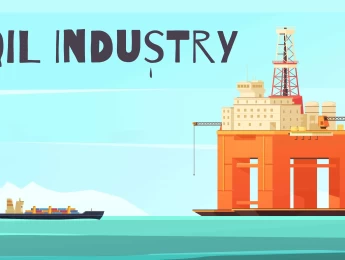The petroleum business is worth billions worldwide, and it’s important to fully understand the potential risks and mitigation tactics to help maintain profits and ensure continuous improvement within individual gas and oil businesses in this huge network.
Understanding the implications and costs of CAPEX and OPEX regulations is important to conducting an in-depth economic analysis. A full review of the tax process will be required, along with innovative planning surrounding royalties, transportation, and cash flow depreciation. It’s important to construct a solid process to review accurate data and systems and audit any changes to highlight risk areas to the business and overall turnover.
Tax and finance professionals in the oil and gas industries must develop robust international regimes and mutually beneficial relationships to maintain profitability. Understanding the value of money across all relationships and interactions is key to bridging the gap between theory and practicality and aiming for improvement across the industry.
Upon completion of this course, participants will be able to:
- Identify risk areas using data and assessments.
- Develop a strict auditing plan to trace trends and measure developments.
- Understand time for value concepts and put them into practice.
- Move concepts from theory to reality using a smooth and traceable change process.
- Create solid investment opportunities.
- Maximise your return on investment.
- Understand the most beneficial cash-flow models.
- Develop a working knowledge of capital budgeting.
This course is designed for anyone responsible for financial management and decision-making within the petroleum industry. It would be most beneficial for:
- Planning Managers
- Finance Managers
- Business Owners
- Data Analysts
- Change & Control Managers
- Commercial Managers
- Business Advisors
- Account Managers
- Project Managers
- Asset Managers
- Auditors
- Risk Assessors
- E&P Managers
This course uses various adult learning techniques to aid full understanding and comprehension. Participants will review real-world cash flow models in the petroleum industry and highlight potential pain points and success areas.
They will be presented with the best tools in the industry to monitor profits and losses and conduct learning exercises to help identify where problems may arise based on previous behaviour and data. The participants will see hypothetical cash flow models and work together to identify the best investment models and requirements within international agreements to make the most profit and reduce debts.
Day 5 of each course is reserved for a Q&A session, which may occur off-site. For 10-day courses, this also applies to day 10
Section 1: Your Economic Evaluation
- Oil and gas industry objectives.
- Capital expenditure planning.
- Your economic evaluation.
- Working with partners.
- Finding a reliable supply chain.
- The types of inflation and how they affect you.
- Consumer price indexing and risk indicators.
- The compound interest formula.
Section 2: The Time Value of Money
- Equivalence and interest tables.
- Value of present sum.
- Value of future sum.
- Assessing ordinary annuity and annuity due.
- Loan amortisation and project financing.
Section 3: Cash Flow Models
- Before-tax cash flow (BTAX).
- Discovering your gross revenue and data requirements.
- Capital forecasting in the product stream.
- CAPEX - expenditure.
- Economies of sales and operation breakdown.
- OPEX - expenditure.
- The gas processing flow chart.
- Best oil production facilities and related cash flow issues.
Section 4: Cost Estimation
- Cost management and project mapping.
- Cost estimation tools and techniques.
- Auditing systems and risk identification.
- Level and dependence of cost estimates.
- After-tax cash flow variables.
- Weighted average capital costs.
- The Capital Asset Pricing Model (CAPM).
- Equity and debt management.
- WACC calculations.
Section 5: Cash Flow and WACC
- Probability indicators.
- Cumulative net-cash flow management.
- Discounted payback.
- IRR, NPV, PI, and LRMC.
- Your maximum sustainable list and working below this.
- Indexed pricing models.
- Netback value (NBV).
- Discounting models and assumptions.
Section 6: International Agreements
- Collaboration and international agreements.
- Negotiation and contractual terms.
- Fiscal year comparison and sliding scale tranches.
- Joint venture and risk services.
Section 7: Financial Decision-making
- Types of investment.
- Making the right financial decision.
- IRR and revenue-related problems.
- Mutually exclusive investments.
- Leases and buying.
- Nominal and real-world cash flow.
- Probability disruption analysis.
Section 8: Expected Value Concepts
- Expected monetary value (EMV).
- Decision trees and interpretation.
- Applications and simulations.
- Sensitivity diagrams and waterfall charts.
- Feasible profitability.
Upon successful completion of this training course, delegates will be awarded a Holistique Training Certificate of Completion. For those who attend and complete the online training course, a Holistique Training e-Certificate will be provided.
Holistique Training Certificates are accredited by the British Assessment Council (BAC) and The CPD Certification Service (CPD), and are certified under ISO 9001, ISO 21001, and ISO 29993 standards.
CPD credits for this course are granted by our Certificates and will be reflected on the Holistique Training Certificate of Completion. In accordance with the standards of The CPD Certification Service, one CPD credit is awarded per hour of course attendance. A maximum of 50 CPD credits can be claimed for any single course we currently offer.
Tags
petroleum, Oil & Gas, Cash Flow, finance, cost, Decision-Making, Risk Analysis, estimation, EMV,- Course Code IND01-116
- Course Format Classroom, Online,
- Duration 5 days














